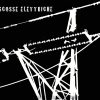Masche – Oxia Chaos
MASCHE, Oxia Chaos (2022)
Nato 10 anni fa, l’ensemble Masche arriva nel 2022 a pubblicare il secondo lavoro, Oxia Chaos (dopo Kalvingrad del 2018), un disco ispirato a The Martian Chronicles di Ray Bradbury che vede la formazione canavese trovare una propria stabilità nelle figure di Valerio Zucca Paul (elettronica), Andrea Chiuni (basso, voce), Diego Rosso (batteria) e Alessandro Cartolari (sax). L’iniziale The watchers si apre con i versi declamati da Chiuni che si imbattono nel suo basso ripetuto e nel sax intrusivo di Cartolari, il tutto sviluppato attorno a suoni elettronici che rendono l’atmosfera oscura. Un caos organizzato dai connotati R.I.O., un lungo sviluppo che funziona e si mantiene fluido pur essendo decisamente stratificato. Le disturbanti evoluzioni di The fire baloons sanciscono una sostanziale coesione tra substrato elettronico e perifrasi jazz, un connubio che incarna lo spirito profondo del quartetto, che lancia uno sguardo ai classici dandone una naturale interpretazione. There will come soft rains è un altro episodio molto strutturato, un crossover di sfumature imbevute di visioni free, elettronica visionaria, scenari sci-fi psichedelici e avanguardia, 20 minuti che richiamano alla mente Van Der Graaf Generator e Anatrofobia, ma anche Autechre e Cabaret Voltaire. Il vortice sperimentale termina con un ulteriore sollecito alle nostre menti, Night meeting, perfetta conclusione dell’ennesima interessantissima opera targata ADN Records. (Luigi Cattaneo)
Luigi Cattaneo (Progressivamenteblog)
Masche
Electrojazz, improvvisazione
Masche nasce dalla confluenza di esperienze artistiche e personalità forti. È luogo di bio-accumulo di energie che generano sostanza sonora nuova dalla consistenza plastica, fuori dall’ordinario. Ci dice Alessandro Cartolari: “cerchiamo di trovarci da diversi anni con regolarità settimanale, facendo sempre larghissimo uso di improvvisazione, quindi la nostra musica ha dei tratti quasi auto-generativi, spostandosi lentamente, ma in modo costante.” Produzione discografica ad oggi scarna, “Kalvingrad” (2018) ed il nuovo “Oxia Chaos“, che protende il nostro discorrere tra recensioni. La strega della foresta del Canavese sarà pure giovane, ma le sue membra hanno storie più antiche; ripercorrendole un poco si comprende perché è già così potente. In formazione, all’origine, parliamo del 2013 giù di lì, ci sono Andrea Chiuni (basso), Valerio Zucca Paul (elettronica), Cristina Trotto Gatta (voce), Diego Rosso (batteria) e Alessandro Cartolari (sax baritono). Chiuni e Rosso avevano già sviluppato un ibrido dalle coloriture espressioniste e liquefazioni quasi psichedeliche: EX-P, due dischi tra il 2006 e 2008. Di lì forse viene certa teatralità e un genoma di progressive (…capisci amme’) deviante (si ascolti Attacco al Tram, in “Carpaccio esistenziale”) che qui producono sviluppi onirici e fantascientifici. Con Valerio Zucca si può risalire addirittura alla fine degli ottanta. Se è impegnativo ritrovare materiali di Nasty Nurses, Ludwig Elite o di Neutral Coital, dei Disoriente la rete offre in visione un concerto del 1985, rock e psichedelica, materiali contaminanti. Avvia l’evoluzione sperimentale sotto il nome di Abstract Q e con il trio 3EEM (insieme a Danilo Corgnati e Fabrizio Bazzoni); cinque lavori tra 2004 e 2011, bell’esercizio di instabilità tra ance ed elettronica, con un che di Cabaret Voltaire quì e Faith No More là. Quindi il suono post-glitch, con tratti di Autechre, condiviso con Andrea Ferraris. Il progetto si chiama Ulna e vi scorre quella linfa cibernetica che fluisce in Masche e ne illumina dall’interno interplay e timbriche. Cristina Trotto Gatta tra spoken word e machine learning blues percorre il reticolo urbano di Kalvingrad. Esce dal gruppo; noi la si rivorrebbe ancora. Nell’attesa la si rincontra in “Canto Fermo” degli Anatrofobia, dove si ha conferma dell’originale intensità interpretativa. E c’è Alessandro Cartolari. Che significa proprio Anatrofobia (senza dimenticare Andrea Biondello), ma anche Margine, con il fratello Luca e Stefano Giust e le partecipazioni di Paolo De Piaggi e Andrea Biondello, roba Setola di Maiale; chi ce l’ha quei lavori se li tenesse stretti. Cartolari e Rosso, per venire ai giorni nostri, stanno dentro agli Extrema Ratio che con i Masche condividono una peculiare estroversione. Ma dove ER è pratica di squartamento, come accentua la recente “Mutilation“, qui si esplora in avanguardia scenari post-metropolitani (usate se volete i termini distopia e antropocene, però si approssima e basta). I riferimenti letterari (Le Città Invisibili in “Kalvingrad“, Cronache Marziane in “Oxia Chaos“) sono indizi d’una costruzione, antinaturalistica certo, ma visionariamente narrativa. “Raggiunto un risultato che pensiamo sia per noi “valido”, isoliamo le micro idee, magari creiamo brevi temi e strutture che aiutino a fare emergere le peculiarità di quella improvvisazione.” L’esordio è combustione, cenere. C’è un senso di soffocamento in Still, immagine dinamica: il sax lancinante, il basso che slappa nella bocca dello stomaco, la ritmica a disegnare strategie, l’inquietante fatalismo di Cristina Trotto. Quel che viene dopo è declinazione d’un esserci “purché free”, un suono che ha la muscolatura di Ranxerox e la postura d’una bambola di Bellmer, soggetto a disgregazioni e smagliature. Siamo in un universo che definisce sé stesso. A che genere appartengono eccitazione e nevrosi? Quello di Grumi, Desire, immaginariamente tra Bjork e Tetsuo, è un corpo basso-batteria-elettronica che si muove come un mostro deforme ed un sax che tenta la via cosmica. A bocca chiusa inizia una specie di sbilenca ballata folk-spiritual, che poi devia verso atmosfere tragiche (Hung). L’infinito desiderio d’umano torna in Puma (On a Leash) dove, più che altrove, aleggia pulviscolo blues. There must be a place for crystal balls, così ci pare di comprendere, mentre intorno una mistura di electro-jazz larvale fuoriesce dai tombini dell’improvvisazione. Si svolta l’angolo, ci si impiega quattro anni quasi. Si resta senza fiato.
L’apocalisse imminente
Alessandro Cartolari ci dice d’una musica consapevole di sé stessa. Dopo aver attivato fenomeni che non controllano del tutto, i Masche si ritrovano in un grandioso ed allucinato scenario sci-fi. La dichiarata caratterizzazione letteraria bradburiana più che programma è rivelazione nel farsi della musica. Se dovessimo poi seguire le nostre impressioni circa colori, architetture e spazialità, citeremmo non tanto “Cronache Marziane” ma “Noi Marziani” o “I Simulacri” di Philip K. Dick. L’umor elettronico si è fatto pervasivo, le composizioni si sono estese (nessuna al di sotto dei dieci minuti) e nella texture compositiva emergono caratteristiche che ci fanno pensare a distopie à la Van Der Graaf Generator. Non abbiamo mai parlato dei Van Der Graaf Generator, ma non penso sia un abbaglio, anche solo per l’uso di certi suoni, sax elettrificato, moog, basso distorto, la voce di Andrea Chiuni. Anche un certo tipo di registrazione, scelta da Manuel Volpe, ha dato un calore/colore diverso al nostro sound, rispetto al primo disco, più settanta. Ci sono momenti di Oxia Chaos in cui abbiamo voluto usare riferimenti espliciti a certo tipo di rock/jazz. In queste atmosfere dai riverberi violacei e cibernetici, il sax distende il suo canto free con potenza, lungo climax emotivi in cui il basso gli s’avviluppa intorno (The Watchers). Flussi avventurosi in cui si sperimenta una specie di soggettiva sinestetica, dove angolature dal groove brutal-funk si sciolgono in acidi laghi elettronici da cui si eleva distante un canto di bipolare elegia (la seconda parte di There will come). Night Meeting, che chiude, è un sedato blues androide: due cianosi melodiche, quella del sax e un sintetico fantasmatico mugghiare, dialogano, lontane. Attoniti al loro scomparire, ci rendiamo conto che erano le nostre voci di dentro. Lavoro di monumentale profondità.
(8)
Dionisio Capuano (Blow Up) Marzo 2022
Lo scisma artistico tra i fratelli Cartolari ha portato Luca (basso) a un nuovo capo degli originari Anatrofobia, “Canto fermo” (2020), e Alessandro (sax baritono) a inaugurare Masche. I due hanno comunque un fattore comune, ossia l’impiego della voce di Cristina Trotto Gatta: nel primo “Kalvingrad” (2018) Alessandro ne sfrutta le declamazioni sub-Bjork sopra informi improvvisazioni di media durata. Nel secondo “Oxia Chaos” Gatta lascia ma il progetto continua a prevedere la voce, stavolta quella del nuovo bassista Andrea Chiuni, mentre le durate si ampliano fino alla monumentalità. Proprio la voce, un declamato teatral-robotico, in “The Watchers” (11 minuti) tenta di imbonire una spettrale sonata free-jazz-funk. “The Fire Baloons” attacca con un trio tra un muezzin distante, un gorgoglio androide in tilt e altre sconnessioni soniche vaganti, e procede come blues malandato, spezzato da un silenzio di buio e nulla, mentre la voce fa da cantastorie rapsodico. L’improvvisazione iniziale di “There Will Come Soft Rains” (20 minuti) annovera nitriti Coltrane-iani, “celestiali” bordoni industriali e voce psicotica. Al sesto minuto la musica diviene pura radiazione e la voce fa il suo recitativo; un riff del sax avvia una nuova caotica improvvisazione danzante che conduce a un mantra elettronico e un’ultima invocazione vagamente Jim Morrison. I 10 minuti di “Night Meeting” sono un horror-jazz senza voce ma, in compenso, ricolmo di “canti” sinistri di sax ed elettronica. Presentato come collettivo aperto (dal Canavese) ma di fatto riconfermato nella formazione, i già citati Cartolari e Chiuni più Valerio Zucca Paul all’elettronica e Diego Rosso alla batteria, e nell’ispirazione fanta-letteraria (il precedente sulle “Città invisibili” di Calvino, questo sulle “Cronache marziane” di Bradbury). Ha, forse, troppo caos e parecchia autoindulgenza, come pure un’ambizione, ben rinsaldata dall’esperienza dei quattro, generosa di acuti momenti d’immaginario distopico, furibondi contrasti tra timbri post-jazz e interessanti spunti di musica elettroconcreta. Registrato da Manuel Volpe. Edito in cassetta dalla valida Cruel Nature Records.
6,5/10
Michele Saran (Ondarock) Aprile 2022
Cinquantacinque minuti di duro e puro incanto, con questo nuovo lavoro dei Masche liberamente ispirato alle Cronache Marziane di Bradbury. Delle atmosfere desolate eppure dolcissime di quel libro qui c’è un corrispettivo sonoro, nel dipanarsi su campiture ampie di un jazz rock ulcerato e ossuto infiltrato di lacerti psichedelici, schegge crimsoniane, cupe involuzioni alla Van Der Graaf Generator, soundscape degli Area che furono. Il rugoso sax baritono di Alessandro Cartolari è una forza della natura. E della cultura.
Guido Festinese (Alias – Il Manifesto) 16/07/2022
Intervista a Masche in Puzzle – Radio Città Aperta
I Masche sono un supergruppo proveniente dal Canavese composto da musicisti già attivi anche in gruppi quali Anatrofobia ed Ex-P e hanno di recente realizzato l’album “Oxia Chaos” edito dalla ADN records, un potente sound tra impro jazz rock ed elettronica sperimentale. La band ha presentato il lavoro all’interno di Puzzle con Gianluca Polverari – 21 Marzo 2022
Masche is an Italian collective that offers a genre of Experimental and Jazz music with references to Electronic music. Long-lasting tracks and complex plots are the main ingredients of their sound, full of ideas and creative insights. The new album “Oxia Chaos” was released on February 4, 2022 via ADN Records / Cruel Nature Records and contains 4 long-running tracks. The lineup of this new album consists of 4 elements creating complex and articulated sounds with long intricate instrumental sections. Each of the artists involved brings their own creative and executive contribution to the band sound, offering technical insights and high-level virtuosity. the album is complicated and at first listening it can be difficult, but after a more careful listening it reveals all its beauty and the technique of the artists involved comes out. We are in a territory that ranges from Free Jazz to Experimentation, passing through all genres of Prog and Improvisation. Even the electronic inserts give a modern touch to the sound, which is true is complicated and intricate but of fine workmanship. The vocals are also dynamic and adapt well to the proposed music, offering original experiments. A listening recommended for lovers of the more complex sounds of jazz and improvisation, with a good dose of experimental and avant-garde music. The proposed sound is original and fresh and enhances the individual technique of the artists involved.
Jacopo Vigezzi (ProgRock Journal) 23/02/2022
Released in the year 1950 and written by respected US Sci-fi novelist Ray Bradbury The Martian Chronicles, is seen as a classic example of post-apocalyptic/dystopian fiction. Oxia Chaos is this sonic collective’s attempt to soundtrack said book, and it’s their second album
Hailing from Ivrea, Italy, Masche started in 2013 in Canavese, as an open collective focusing on merging rock, electronics and improvisation. Eventually, a steady line-up was settled, currently consisting of four musicians: Valerio Zucca Paul: electronics, Andrea Chiuni: bass and voice, Diego Rosso: drums, Alessandro Cartolari: baritone sax.
In The Martian Chronicles, we find strife and destruction due to the exploration and settlement of Mars, the home of indigenous Martians, by Americans leaving Earth that has been devastated by nuclear war. And this can be felt within the music! First of all, the sound “transliteration” of the book via Oxia Chaos seems as if it was recorded in a leftover cinematic set, combining that theatrical essence with a free jazz improv sensibility. The aesthetic of the production is organic and crystal clear, with a generally earthly sound. A mixture of instrument dynamics with electronic saturation, either in the continuance or contradiction manner; creating both topology and topography within the sound.
This is free form jazz, and it is definitely freaky. It’s a blend of loud and serene, capturing the book’s troubled outrush. Oxia Chaos progressively moves via the chains of reactions between the musicians. Sound phrases instantly create images, freely. Dramatic reciting of passages from the book, with an agonizing and emerging voice, accompanied by manic jazzy outbursts or low-profile soundscapes, where the sax is cataclysmic, the bass is crunchy, drums are pumping, and the electronics are shadowlike, sometimes scorching, like drops of water straight from hell. The whole soundscape is claustrophobic yet vast in conception, this is an album with various speeds, various sentiments, various sound ecologies, various moods, bright and dark contemporary and vintage.
With Oxia Chaos, Masche approach scoring The Martian Chronicle with the utmost respect to its atmosphere giving a great audio counterpart, which generates further stories. But also, Oxia Chaos stands as a heavy and heavily improvised jazz creation with rock elements, complete, with both volume and atmosphere – making it a fully psychedelic experience in every possible way. To find out more drop by here
4/5
Karl Grümpe (Music Machine)
Masche is an Italian free jazz, free rock group who shapes compositions out of texture and will power. Their progression is honest; it feels like what you’d think freeness would sound like. There’s Last Exit vibes, but not quite, more direction-based, more stillness against the mania. It sounds weird to say, but Masche‘s freeform is construction-based; they want you head towards a place. The direction works, and their recording “Oxia Chaos” is totally spatial, with bass and saxophone smack-dab against drums and electronics. The two sides are in constant battle, but it’s friendly, like leaves in space, anxious, but comfortable, willing to dream. The songs are long, driven, almost furious, but always crafted. ‘There will come soft rain‘ clocks in over 20 minutes and has this ethereal moisture attached to it, a unison of all four players, like a play, or a practice of a play (simulation), where you can be loose and focus on the edges.
New Noise Magazine # 61
Second release by this excellent Italian collective, largely comprised of players with backgrounds in free jazz, punk and experimental musics. “Oxia Chaos“ is said to have been inspired by the writing of sci-fi author Ray Bradbury, and their approach is a very cool jazz/rock hybrid (without being jazz rock). Casual vocals (almost like MX-80 in terms of function), large ass saxophone gronk, and slippery free rock rhythm dynamics, with electronic dabbling tossed across the top. It’s a really great sound with occasional flashes recalling the wilder end of the Canterbury spectrum.
The Wire – January 2023
Das piemonteser Jazzrock- und Elektronik-Quartett mit dem deutsch klingenden Namen Masche bringt ein neues, thematisch von Ray Bradburys Mars-Chroniken beeinflusstes Album heraus. “Oxia Chaos” enthält vier ausladende, oft trügerisch ambient beginnende Tracks und erscheint als CD bei ADN Records sowie als Tape bei Cruel Nature Records.
“Masche ensemble was born in Canavese in 2013, and plays a blend of electronics and jazz-rock improvisation. Being the group very open and liquid at the beginning, it acquired at some point a permanent line-up including Andrea Chiuni (bass), Valerio Zucca Paul (electronics), Cristina Trotto Gatta (voice), Diego Rosso (drums) and Alessandro Cartolari (baritone sax). In 2017 Masche recorded a debut album, Kalvingrad, issued in 2018 by ADN Records and Wallace Records. In 2019 Masche joined other Wallace bands for the album dedicated to the 20th anniversary of the label – Tracce XX – and after this issuing Cristina Trotto Gatta left the group. Oxia Chaos is Masche’s second album, a new step of a personal path balancing between organization and extemporary instinct, and has been recorded and mixed at Rubedo Recordings (Turin) by Manuel Volpe. Oxia Chaos is inspired by The Martian Chronicles by Ray Bradbury, and is an attempt to express an honest synthesis of the different sonic souls of the 4 musicians.” (ADN Records / Cruel Nature Records)
African Paper 25/02/2022
Put out on the circuit only recently via the long-standing Italian label ADN Records is “Oxia Chaos“, the sophomore album by the Masche quartet. Comprised of Valerio Zucca, Andrea Chiuni, Diego Rosso and Alessandro Cartolari the group combines a sonic arsenal of bass, drums, baritone sax, vocals and electronics to lay down a new body of work spanning a total of four extended compositions and a total playtime of roughly 55 minutes, presenting a well demanding and hard to grasp combination of intense Spoken Word poetry atop a complex, spaced out amalgamation of Post (No)Wave, Free Jazz x Free Improv and an undeniably Industrial-leaning attitude with a certainly desolate and apocalyptic twist, presenting calmer, yet not less demanding structures in the intro of “The Fire Baloons” which later progresses in an almost Morricone’esque fashion, building up a vibrating tension to the max whereas the subsequent cuts “There Will Come Soft Rains” and “Night Meeting” continue to walk on the meandering, complex and ever winding path laid out by their predecessors whilst catering some surprisingly uplifting as well as deep and well nocturnal, sometimes even Jazz Noir-infused sequences along the way. One for a niche audience within the already hyperniche field of Avantgarde Music.
Baze.DjunkIII (Nitestylez.de) 20/03/2022
Depuis leur premiere enregistrement en 2018 (Kalvingrad), Masche s’est réduit à un combo de quatre musiciens: depuis le depart de la chanteuse Cristina Trotto Gatta, le bassiste Andrea Chiuni assure seul les vocals. Avec à ses còtés, Toujours Valerio Zucca Paul à l’électronique, Diego Rosso à la batterie et Alessandro Cartolari au saxophone baryton. La musique garde toutefois les mèmes caractères. Si Kalvingrad semblait inspiré par l’obsession de l’urbanisme concentrationnaire (cf. sa pochette), Oxia Chaos doit son inspiration aux Chronique Martiennes de l’écrivain américain Ray Bradbury, recueil de nouvelles paru fin d’années 1940/début des années 1950. Le propos développé ici apparait clairement comme une extension du premier album: l’indication sur la pochette nous avertit que “toute personne sensée cherche à quitter la Terre”. Et c’est ce désir de Mars qui structure l’album, à travers quatre titres relativement longs (de 10 à 20 minutes) faits de sons complexes dans un univers où se croisent le free-jazz, l’expérimentation et quelques éléments d’un rock plus progressif quoique aventureux. Si parfois la musique emprunte des sentiers apaisés, la tonalité d’ensemble reste plutòt sombre, et le croisement du saxophone baryton avec l’électronique a parfois quelques affinités avec l’univers glauque de certain enregistrements de Remote Viewers.
Pierre Durr (Revue&Corrigée)
Masche was born in 2013 in Canavese, Italy as an open collective (Anatrofobia, 3eem, Ex-p), aiming at finding sonic combinations between electronics, rock, and improvisation. Their latest album fuses quirky electronics with deconstructed funk bass and free jazz skronks; sounding to these ears like The Pop Group and Glaxo Babies at their most experimental and loose.
Animal PSI 8/02/2022
Red Planet Crash
That rather thorny sleeve design seems to warn us of being helplessly snagged and scratched by the barbs of the Masche briar patch from the very first unsure step. The gloves are on then, but before the litmus test, an explanation of how the group got here from there. Formed around nine years back, this Italian avant jazz combo’s initial open-door policy eventually gelled into a (near) permanency with their debut Kalvingrad (ADN Records/2018), after which vocalist Cristina Trotto Gatta jumped ship to join Anatrophobia. Now reduced to a quartet for their second, bassist/vocalist Andrea Chiuni, synthesist Valerio Zucca Paul, blatteur Diego Rosso and Alessandro Cartolari on baritone plumbing have put themselves under heavy Martian manners, as references to sci-fi author Ray Bradbury’s Martian Chronicles cut a major swathe through the whole shebang. Much like this… the tracks seem to reference certain relevant parts of Mr. B’s magnum opus, while the album’s title shares its name with some kind of Martian geological anomaly. Once these boys get their teeth into a erm, concept, they certainly don’t let go. It’s Mars everywhere. But here’s where a major lapse in band judgement occurs with (red) lights flashing and bells a-ringing. From “The Watchers” to “Night Meeting”, the instrumental outage is as effervescent and as dynamic as it gets…misshapen sax blurtations, alien synthscapes and metallic percussives all bubbling to the surface, but when bassist/voxist Andrea Chiuni’s heavily doctored sprechsang takes on the guise of a scenery-chewing Dalek – run for your life – preferably up a flight of stairs, you’ll be safe there. Voice-boxes, vocoders and the rest of their demon brood have dated so very badly over time. I mean, who in their right mind would want to visit ‘Frampton Land’ or ‘Rocky Mountain Way’ for a second time?? Let alone cock an ear to Herbie Hancock’s thankfully brief spate of chart hits! For more guaranteed oomph p.s.i. (without the Maplins/larynx interface), I’d much rather point you towards previous review candidates like Sweden’s Nods Off or Spain’s Xerai instead.
Also available on cassette (CN191) through the auspices of Newcastle-upon-Tyne’s Cruel Nature records.
Steve Pescott (The Sound Projector) 17/10/2022



